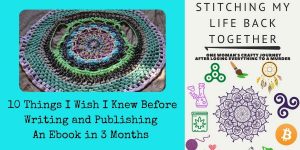
If you thought sunscreen keeps you from burning, think again. There have been five reports of people catching fire after applying sunscreen in the last year. Four burn cases were reported in the U.S. and one in Canada.
The maker of Banana Boat sunscreen is recalling some of its spray-on products in Canada and the U.S. following reports that a handful of people have caught on fire after applying the lotion and coming into contact with an open flame.
The company is pulling two types of continuous spray Banana Boat sun care products, Banana Boat Ultra Defense SPF 60 Spray Sunscreen and Banana Boat Sport Performance SPF 60 Spray Sunscreen, from stores across Canada.
As wells as pulling 23 varieties of Banana Boat UltraMist formulations from store shelves in the U.S. The U.S. recall includes products like UltraMist Sport, UltraMist Ultra Defence, and UltraMist Kids. UltraMist’s spray valve is said to be applying too much lotion and as a result the lotion is taking longer to dry, which raises the flammability risk.
The company says there is a “potential risk of product igniting on the skin if contact is made with a source of ignition before the product is completely dry.”
Out of more than 20 million of these products sold, your family could be one of many to get burned.
Not only are you being burned by potential flammability, but also because of other sunscreen ingredients that could put you and your loved ones at a higher risk to develop cancer.
 Get Aloe Vera SPF 30 sunscreen here on Amazon!
Get Aloe Vera SPF 30 sunscreen here on Amazon!
There are 17 individual sunscreen ingredients that are FDA approved: 15 of these are clear chemicals that absorb UV light and two are made of minerals that reflect UV light. They do a pretty good job at blocking UV light, but they actually get used up as the sun shines on them. Some sunscreens lose as much as 90% of their effectiveness in just an hour.
Chemical sunscreens soak in and quickly find their way into the bloodstream. They scatter all over the body without being detoxified by the liver and can be detected in blood, urine, and breast milk for up to two days after a single application.
These are chemicals that also interfere with the normal function of hormones. The hormones most commonly disturbed are estrogen, progesterone, testosterone, and thyroid. Endocrine disruptors, like some ingredients in chemical sunscreens, can cause abnormal development of fetuses and growing children. They cause low sperm counts and infertility. Endocrine disruptors that act like estrogen can contribute to the development of breast and ovarian cancers in women, and other endocrine disruptors may increase the chance of prostate cancer in men.
Chemical sunscreens while in the process of absorbing UV light, can cause some of the chemicals themselves to mutate. Some generate DNA-damaging chemicals called “free radicals” and these free radicals can lead to cancer.
So what is the solution?
Zinc oxide sunscreens contain particles so small that they are transparent. These sunscreens are called micronized and do a great job at protecting against UV radiation without the effects of the harmful chemicals in other sunscreens.

 Get Mineral Sunscreen SPF 25, Organic Ingredients, Water Resistant Sunblock Lotion, Zinc Oxide, here on Amazon!
Get Mineral Sunscreen SPF 25, Organic Ingredients, Water Resistant Sunblock Lotion, Zinc Oxide, here on Amazon!


